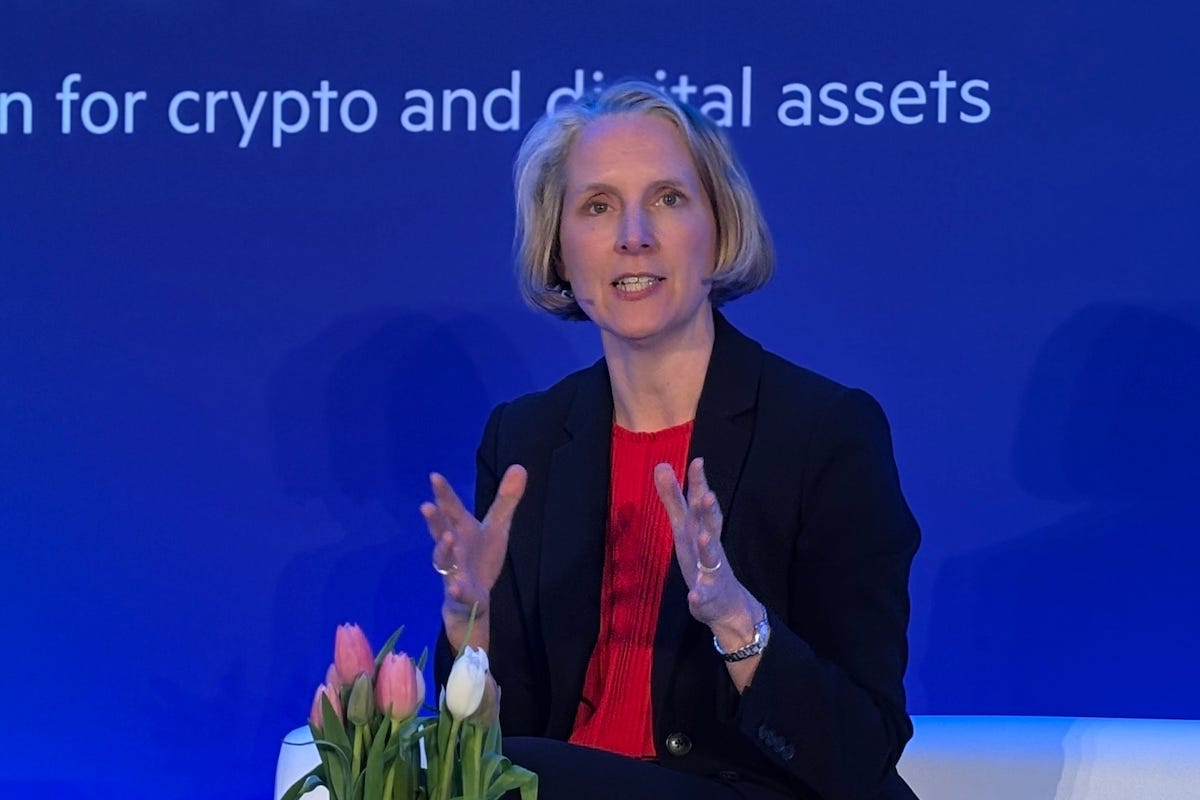UK Accelerates Push Toward Same-Day Trade Settlement with Blockchain Tech
New financial strategy aims to boost fintech growth while tightening consumer safeguards through updated crypto regulation
The UK has committed to a sweeping overhaul of its financial infrastructure, aiming to implement next-day (T+1) trade settlement by October 2027 and laying the groundwork for eventual same-day settlement. At the heart of this transformation lies a powerful enabler: blockchain and tokenization.
Economic Secretary to the Treasury Emma Reynolds emphasized the UK's ambition to lead financial efficiency through technological innovation.
“We are moving to T+1. And in the future, we might move to T+0,” she said at the FT Digital Assets Summit in London on May 6.
Same-day (T+0) settlement would represent a radical leap, allowing trades to settle immediately after execution. “Some of the technology we’re talking about here could move in lockstep for some of these other innovations that we’re bringing.”
Blockchain is a type of Distributed Ledger Technology (DLT), which refers to digital systems that allow multiple parties to share and synchronize data across decentralized networks. It organizes information into secure, immutable chains of transaction blocks. These technologies are central to reducing settlement friction and modernizing post-trade operations.
The transition to T+1 by October 11, 2027, follows the recommendations of the UK’s Accelerated Settlement Taskforce. In addition to cutting settlement latency, the shift opens the door for adopting tokenization—a method of representing securities and assets on digital ledgers—as a standard industry practice.
Reynolds confirmed that the government had accepted the taskforce's recommendations and would legislate to enforce the new timeline.
The Financial Services Competitiveness Strategy, which will be unveiled on July 15, is expected to outline the UK's vision for leadership in digital finance and financial services.
Regulatory Clarity for a Growing Sector
In tandem with its infrastructure revamp, the UK is establishing a regulatory framework for digital assets to ensure innovation and consumer protection.
Reynolds, appointed as Economic Secretary in January 2025, highlighted a recently published draft law that would bring crypto activities, such as stablecoin issuance, operating trading platforms, or handling crypto assets, into the regulatory perimeter for the first time.
“The draft legislation we published in April sets out how we will regulate crypto assets, bringing in new regulated activities. Setting up a crypto asset trading platform and issuing a stablecoin will be brought into the regulatory perimeter,” she explained.
“Any firm that is dealing with UK consumers in any of those activities will have to be authorized by the FCA (Financial Conduct Authority). They'll have to comply with the rules.”
Unlike the European Union’s MiCA (Markets in Crypto-Assets) regime, which created a dedicated framework from scratch, the UK integrates crypto regulation into its existing financial regulatory model.
“I understand that there are some concerns about that,” Reynolds said. “But we think this is the appropriate way to strike the right balance between consumer protection and giving the industry that space to innovate.”
The regulatory perimeter will also apply to foreign entities interacting with UK consumers, closing gaps that have historically allowed some firms to operate without UK authorization.
Among the new regulated activities is the issuance of stablecoins.
While the UK has yet to see a sterling-backed stablecoin, Reynolds noted, “That will be permitted and brought into the regulatory perimeter. It is an interesting part of a diverse digital payments landscape.”
She also confirmed that even high-profile tokens like the Trump meme coin ($TRUMP) would be subject to UK regulation if marketed to UK consumers.
Some in the industry have pushed for regulatory rollbacks, including allowing crypto ETNs (exchange-traded notes) and relaxing marketing rules for firms not registered in the UK. But she firmly rejected those ideas.
Global Partnerships and Public Understanding
Reynolds underscored the importance of international collaboration, especially with the United States, the world’s largest financial and crypto market.
“The Chancellor met with the US Treasury Secretary just a few weeks ago,” Reynolds said on May 6. “They discussed further cooperation in this area. We think there's great potential there.”
The FCA is also taking a more international stance, opening offices in the US and Australia. While such moves are rare, she framed them as essential.
“We want the UK to remain a leading international financial center. We want more firms to come and do business here.”
While she praised the industry's progress and engagement, she emphasized the need for clarity in public communication.
“What you're engaged in is exciting, but it also confuses people,” she said. “So I think we need to be a little bit careful with the acronym soup around some of this, and just make sure that people understand some of the risks and opportunities.”
Meanwhile, she said the UK does not plan to follow the United States in setting up a crypto reserve.
A Different Kind of Economic Value
Reynolds acknowledged that digital assets don’t traditionally contribute to the economy, such as funding loans for businesses or households, but stressed their role in transforming financial infrastructure.
“The innovation that you are bringing with some of these technologies is making things more efficient, more cost-efficient, quicker in terms of the blockchain and DLT,” she said.
She added that rather than directly supporting physical investment or job creation, these technologies help reduce transaction costs and settlement times across the financial system.
As Britain moves closer to same-day settlement and a tightly regulated digital asset environment, Reynolds' position is clear: the UK intends to embrace the promise of blockchain and tokenization, while keeping consumer protection in view.



